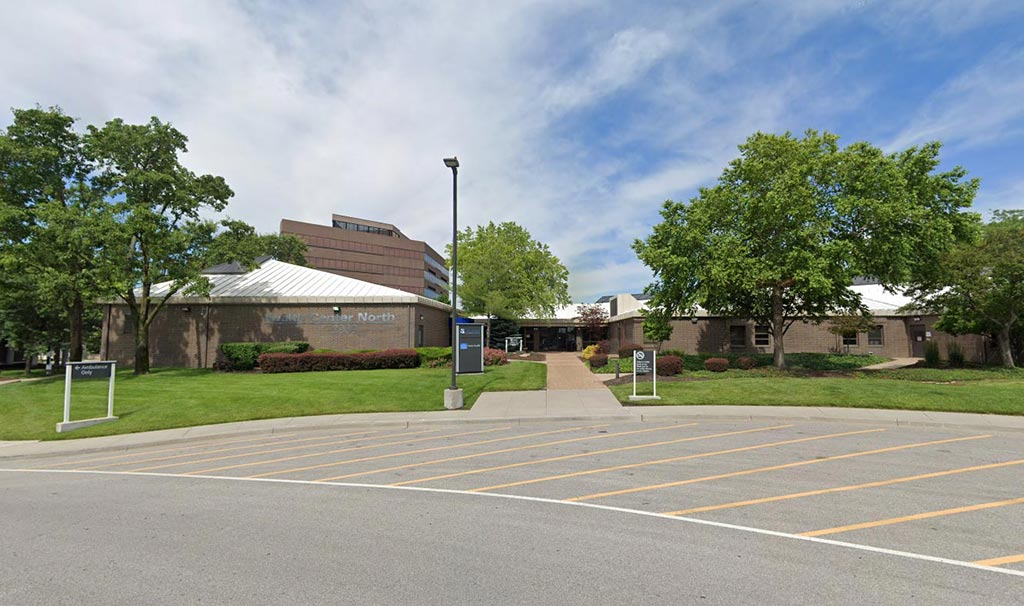Obsessive-compulsive disorder, or OCD, is a chronic mental health condition that includes frequent unwanted thoughts and repetitive actions. People who are struggling with OCD often experience significant distress and may use rigid behaviors to help them manage their fears and concerns.
Signature Psychiatric Hospital provides personalized inpatient treatment and step-down services for adults who are suffering from OCD, as well as outpatient care for adolescents ages 13-17.
Our inpatient OCD treatment center, located in North Kansas City and Liberty, Missouri, focuses on helping adults stabilize, address crisis symptoms, and increase coping skills. We also provide aftercare planning so that you can continue receiving focused treatment after your time in inpatient care ends.
Signs & Symptoms of OCD
While many people have occasional worries that interrupt their day or seem excessive, living with OCD is quite different. When someone is struggling with OCD, their difficult thoughts and behaviors are usually persistent, time-consuming, and disruptive to daily functioning.
If you are suffering from OCD symptoms, you might experience obsessions (intrusive thoughts), compulsions (irrational behaviors), or a combination of both. Symptoms of OCD can include:
- Upsetting and unwelcome thoughts, urges, or images
- Attempts to suppress difficult thoughts
- Performing repetitive behaviors to counteract troubling thoughts
- Feeling driven to repeat an action, such as hand-washing or checking something
- Repetitive mental acts like counting
- Performing irrational behaviors to reduce worry or prevent disaster
- Difficulty functioning
The National Alliance on Mental Illness (NAMI) explains that people who struggle with OCD often find it difficult to control their challenging thoughts and behaviors even when they know that their actions might not make sense.
OCD Statistics
According to the American Psychiatric Association (APA), 2%-3% of people in the U.S. struggle with OCD, with higher prevalence among adult women than among adult men.
The Diagnostic and Statistical Manual of Mental Disorders, Fifth Edition (DSM-5) also provides the following OCD prevalence data for the U.S.:
- The average age when OCD symptoms begin is 19.5 years.
- Almost 25% of males experience symptoms of OCD before age 10.
- Onset of OCD after age 35 is unusual but can occur.
Additionally, in a survey reported by the National Institute of Mental Health (NIMH), 50.6% of U.S. adults who struggled with OCD experienced serious impairment, while 34.8% had moderate impairment and 14.6% had mild impairment.
Potential Effects of OCD
If you may be suffering from OCD, it’s important to seek treatment. Without treatment, your symptoms could get worse, and you might struggle to function in daily life.
Depending on the individual, the effects of obsessive-compulsive disorder may include:
- Lower quality of life
- Relationship and family difficulties
- Spending too much time on rituals
- Being unable to complete important projects
- Trouble functioning at work or school
- Avoiding stressful social situations
- Difficulty seeking medical care due to fear of germs
- Skin conditions due to frequent washing
- Lack of independence
- Thoughts about suicide or suicide attempts
Receiving treatment for OCD symptoms can make a meaningful difference in your life, including by helping you meet commitments, improve relationships, and boost your overall well-being.
Benefits of OCD Treatment
In general, a major goal of OCD treatment is to help you manage distressing symptoms so that you can feel better and function more easily. By receiving OCD treatment, you can also learn more about the condition you have been struggling with and develop healthier coping strategies.
If you are suffering from OCD, you might be afraid of visiting a hospital or other healthcare setting to receive treatment. You may also feel embarrassed or uncomfortable about discussing your symptoms with another person. However, by receiving supportive OCD treatment, you can begin to overcome any feelings of shame and isolation and create a plan for managing the symptoms that have been restricting your life.
At Signature Psychiatric Hospital, our caring staff aims to support patients as they work toward long-term healing. At our inpatient OCD treatment center, patients can work toward their treatment goals and receive valuable support in individual, family, and group therapy sessions.
Therapies Used to Treat OCD
A personalized treatment approach can help you manage OCD symptoms and improve your quality of life. When you receive care at Signature, a multidisciplinary team will work together to create an individualized treatment plan based on your unique behavioral health needs.
At our inpatient OCD treatment center, your treatment might include cognitive behavioral therapy (CBT), which can help you explore difficult thoughts and develop healthier behaviors. We also provide medical care and medication management services for patients who may need them.
Our daily group therapy sessions cover a range of topics that may include substance use disorders, family challenges, anger management, and co-occurring mental health concerns.
Why Choose Our OCD Treatment Center
Finding the right OCD treatment place might feel challenging. You may have questions about what to expect as well as what services or features to look for.
Signature Psychiatric Hospital, located in North Kansas City and Liberty, Missouri, offers a full continuum of care starting at the inpatient treatment level. Our admissions process begins with a detailed health assessment, which can help us determine the level of services that may be most appropriate for you.
We understand that each person who seeks OCD treatment with us is unique, so we offer tailored services and therapies delivered by a multidisciplinary treatment team. We want to help patients regain control of their lives and leave our treatment center healthier and stronger than when they arrived.
For each patient who receives care at our OCD treatment center, we strive to provide a powerful healing experience that can promote lasting positive change.
This content was written on behalf of and reviewed by the clinical staff at Signature Psychiatric Hospital.









